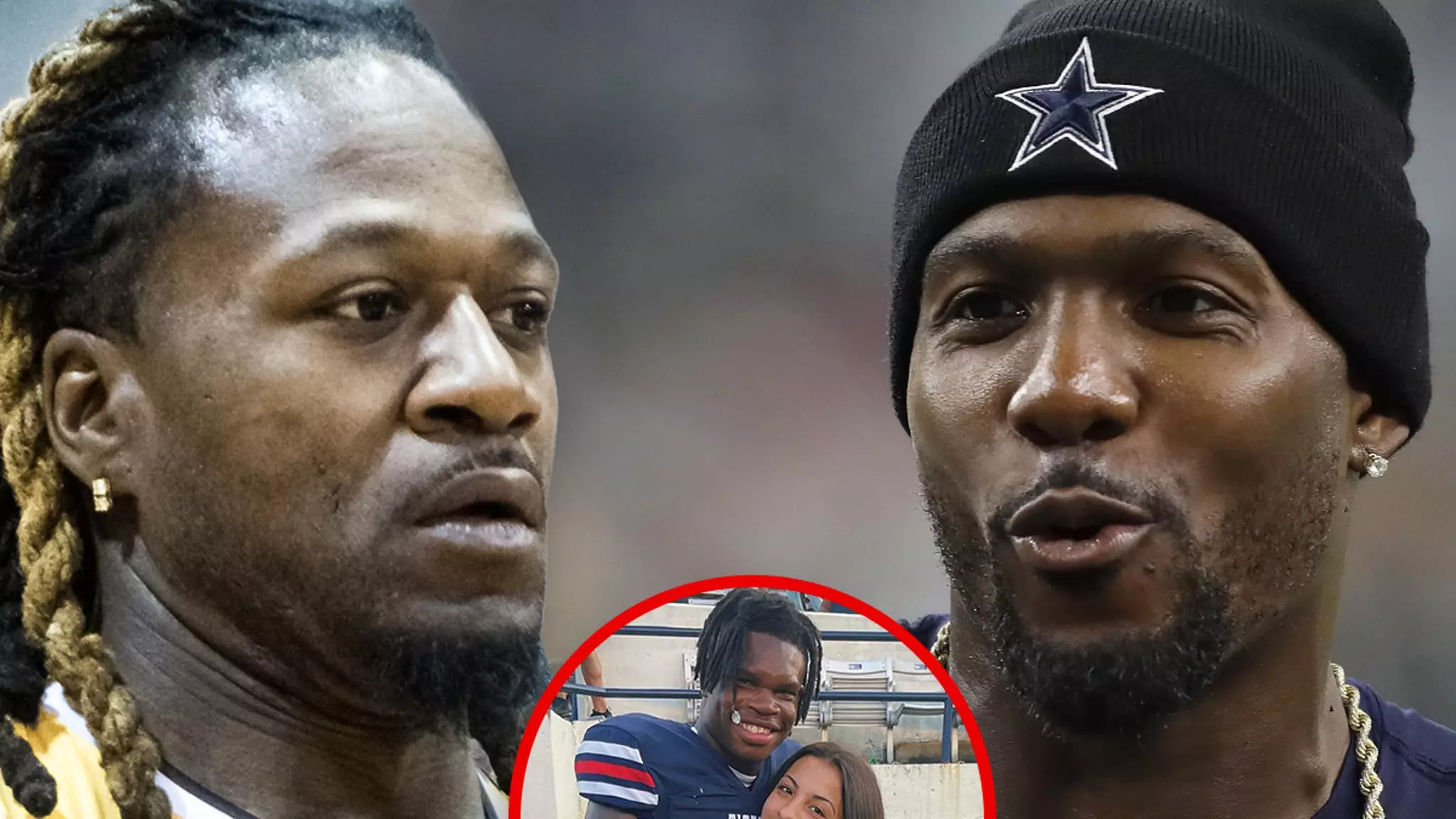In the realm of sports, celebrity relationships often come under intense scrutiny, and recent commentary involving Travis Hunter and his fiancée, Leanna Lenee, has spurred a wave of criticism. Amid all the discourse, former NFL cornerback Pacman Jones has taken a firm stance. His vehement defense of Hunter on his show stands as a rejection of unsolicited opinion on personal matters that should remain private. Jones’s frustration is not merely about a single couple; it reflects a broader question about the public’s intrusive nature towards athletes’ lives.
In an episode of the “Pacman Jones Show,” Jones bluntly addressed Dez Bryant’s comments regarding Hunter and Lenee’s relationship. Expressing exasperation, he urged Bryant and others to “shut the f*** up” about the couple’s dynamic. His remarks were not just an attack on Bryant; they highlighted a prevailing issue where public figures feel entitled to voice their criticisms and assumptions about the personal lives of athletes, often without any insider knowledge of the realities those athletes face. Jones questioned the rationale behind strangers advising Hunter on his relationship, saying, “I don’t understand how somebody else can have advice about what the f*** he likes.”
What’s striking about this episode is the role of social media in amplifying personal opinions. Jones stressed the absurdity of athletes discussing each other’s relationships on platforms like Twitter, highlighting how this behavior dehumanizes individuals by forcing them into a spectacle. The internet has transformed the way we interact with our public figures, often turning relationships into mere fodder for likes, shares, and trending topics. For Jones, this kind of attention not only invades the actors’ privacy but also reduces their humanity to mere entertainment for public consumption.
Jones’s defense of Hunter didn’t just end with his comments. He also pointed to a growing sentiment within the NFL community, suggesting that other players share his view on the matter. It stands to reason that many athletes grapple with the same invasive scrutiny that Hunter is currently facing. This scenario sheds light on the collective behavior among players, where camaraderie and defense of one another become necessary against an environment that often seems ruthless and unyielding to personal autonomy.
Ultimately, Jones’s tirade underscores the importance of respecting boundaries in the arena of personal relationships, particularly within the celebrity and sports industries. The lessons drawn from this situation call for a greater awareness of the impact of our words. The analysis of someone’s personal life from the outside often lacks context and leads to misunderstandings. As fans and public observers, we must strive to respect the privacy of those we admire—after all, their happiness should not be subject to public debate.

